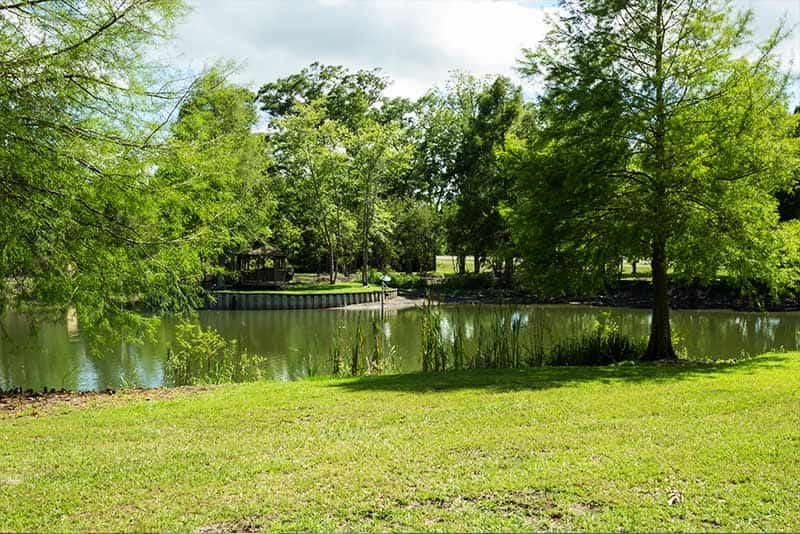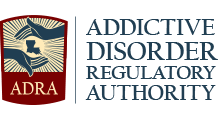Acadiana Treatment Center is a premier source of superior care for adolescents ages 12-17 who have been struggling with PTSD. Our PTSD treatment center in Sunset, Louisiana, provides adolescents with the comprehensive, personalized services that promote improved mental health and long-term progress.
Learn About PTSD Treatment
Treatment for PTSD at Acadiana Treatment Center in Sunset, LA
Posttraumatic stress disorder, or PTSD, is a mental health condition that develops after a person has experienced one or more traumatic events. Among the general public, PTSD is perhaps most commonly associated with military members who have been in combat. But individuals of all ages, including adolescents, can develop PTSD in the aftermath of a wide variety of traumatic occurrences.
The common thread among experiences that precede the onset of PTSD in adolescents is that they involve actual or potential loss of life, significant injury, or sexual violence. Examples of the many types of events that can precede the onset of PTSD include physical attacks, sexual assaults, child abuse or neglect, acts of terrorism, tornadoes or other types of severe weather, and automobile accidents.
Adolescents can develop PTSD after being directly involved in a traumatic incident, after witnessing a traumatic event, or even after learning the details of a loved one’s traumatic experience.
Any adolescent who develops posttraumatic stress disorder needs effective professional treatment. As is the case with many other mental health challenges, the first steps in identifying the ideal treatment for an adolescent who has PTSD involve assessing the nature and severity of their struggles and identifying the presence of any co-occurring conditions.
PTSD treatment for an adolescent should begin with a thorough assessment and an accurate diagnosis by a qualified healthcare provider. The information that is collected during this assessment can form the basis of the adolescent’s personalized PTSD treatment plan.
If your child can benefit from residential treatment for PTSD, Acadiana Treatment Center may have the solutions you’ve been seeking. Our adolescent PTSD treatment center in Sunset, Louisiana, provides comprehensive, personalized care for young people who are struggling with this complex medical condition. Residential treatment for PTSD at Acadiana Treatment Center features round-the-clock care and an array of therapeutic interventions, all of which are selected and customized to ensure that your child receives maximum benefit.
How to Help a Loved One
Helping your child get treatment for PTSD
If your child or another adolescent in your family has been struggling with posttraumatic stress disorder, you may be experiencing a range of difficult and possibly conflicting emotions. You may be worried about your child’s health, confused by their behaviors, frustrated by the complexity of this challenge, or even angry at your perceived powerlessness to help.
Please note that these are all valid and understandable reactions. Also, please know that although you cannot cure your child’s PTSD on your own, you are far from helpless in this situation. You can take several significant steps to protect your child and get them the help they need.
First, of course, you will want to ensure that your child is safe. Adolescents who have PTSD may have an elevated risk for reckless, dangerous, or otherwise self-defeating behaviors. These behaviors may include substance abuse, self-harm, or even suicide. If you fear your child is in imminent danger of harming themselves, get help immediately. Call 911, contact your community’s emergency first responders, or call the National Suicide Prevention Lifeline at 1-800-273-8255.
To get a better understanding of what your child is experiencing, consult with experts such as your family doctor or a local mental health advocacy organization. If you do research online, be sure that you’re consulting reputable websites that provide accurate information. Education can be an essential step toward getting your child the PTSD treatment they need.
As you learn more about PTSD, you should also explore the types and levels of treatment that have helped other adolescents who had this disorder. This will help you identify which treatment providers or healthcare professionals offer the services that can best meet your child’s unique needs.
Remember that there is no such thing as one perfect type of treatment for adolescents who have PTSD. What’s most important is finding the source of help that’s best suited to your child.
Contact PTSD treatment programs that appear to be good fits for your child. Any reputable provider of PTSD treatment for adolescents should be happy to answer all your questions and provide you with any additional information that you request. Be wary of any program that is hesitant or unwilling to provide details about their facility, programs, or services.
Throughout this process, keep the lines of communication open with your child. Adolescence can be a challenging time for both young people and parents, so it may not be easy to discuss a matter like PTSD. But these conversations are vital. They let your child know how much you care, and they provide you with insights into their mindset. Your child’s responses, or lack thereof, can help you determine which type of treatment is best for them.
Finally, don’t lose sight of the fact that recovery from PTSD is a long-term process. While your child is receiving treatment, take part in family therapy or other family support services. These will be valuable opportunities for you to educate yourself about adolescent PTSD, treatment, and recovery. You’ll learn how best to support your child during and after their time in treatment. Set reasonable goals, manage your expectations, and prepare to be a source of ongoing love and informed support.
Why Consider Treatment
Why consider getting PTSD treatment at Acadiana Treatment Center in Sunset, LA
Untreated posttraumatic stress disorder can have a profound negative impact on virtually all areas of an adolescent’s life. Young people who need, but do not receive, effective professional care for PTSD may struggle with maladaptive behaviors, strained or ruined relationships, substandard academic progress, physical health problems, the onset or worsening of co-occurring mental health concerns, and an array of additional challenges.
PTSD can cause an adolescent to withdraw from loved ones, which can deny them a source of personal support at this crucial time. They may lose interest in activities that were once of great importance to them. Untreated PTSD may cause an adolescent to develop low self-esteem, poor self-image, and a pervasive sense of helplessness.
The combined effect of these experiences can push an adolescent into a downward spiral of emotional pain, dangerous behaviors, and diminished hope. However, when an adolescent gets effective professional treatment for PTSD, their quality of life can improve significantly. While a young person is receiving treatment for PTSD, they are protected from future harm as they work to heal past damage.
When your child is struggling with untreated PTSD, the future can appear to be bleak. But when you choose the residential PTSD treatment program at Acadiana Treatment Center, you put your child on the path toward improved mental health and a much brighter tomorrow.
Types of PTSD Treatment Offered at Acadiana Treatment Center
Learn about the therapies used in the treatment of PTSD at Acadiana Treatment Center in Sunset, LA
At Acadiana Treatment Center, each adolescent who receives care for posttraumatic stress disorder follows a personalized treatment plan. We develop these plans following a thorough assessment of each young person’s strengths, needs, and goals. Our focus on customized care means that no two young people will have identical experiences at our PTSD treatment center in Sunset, Louisiana.
The members of your child’s treatment team will monitor their progress throughout their time with us and revise their plan as necessary to ensure that they’re receiving maximum benefit from our therapies and other services.
Depending on a host of individual factors, your child’s personalized PTSD treatment plan at Acadiana Treatment Center may include the following elements:
Medical care: The Acadiana Treatment Center staff includes a medical doctor and a nurse practitioner. These experienced professionals are available to provide basic medical care for adolescents who are receiving treatment with us for PTSD and other mental health challenges. Adolescents typically meet with a member of our medical staff on a weekly basis, with additional meetings available as needed. If your child develops a complex medical condition during their time with us, they will be referred to the most appropriate healthcare provider in the Sunset, Louisiana, area.
Medication management services: Certain prescription medications can help adolescents who have been struggling with posttraumatic stress disorder. If your child can benefit from this type of care, we can include medication management services in their personalized treatment plan. As is the case with all elements of your child’s care, you will be consulted and kept up to date on all medication-related decisions throughout your child’s time in treatment for PTSD at our center in Sunset, Louisiana.
Individual therapy: All adolescents who are receiving care for PTSD at Acadiana Treatment Center participate in regularly scheduled individual therapy sessions. These one-on-one meetings with a master’s-level therapist are excellent opportunities for adolescents to process their experiences at our center, address topics they may be hesitant to bring up in a group setting, and receive focused feedback from a member of their treatment team.
Adolescents typically take part in two individual therapy sessions per week throughout their time in treatment for PTSD, and they may schedule additional sessions as needed.
Family therapy: At Acadiana Treatment Center, we understand how the entire family can be affected when an adolescent struggles with PTSD. We also appreciate the vital role parents and other caregivers can play during and after a young person’s time in residential treatment for PTSD. For these reasons, we provide family therapy on a regular basis, typically once per week. Depending on what’s best for you, family therapy sessions may be held in person or via a conference call. All family therapy sessions at our treatment center in Sunset, Louisiana, are led by a master’s-level therapist.
Group therapy: At Acadiana Treatment Center, groups are an essential component of residential care for adolescents who have been dealing with posttraumatic stress disorder. Groups are structured and supportive forums where young people can gain insights into important topics related to PTSD treatment and recovery, learn from the experiences of other adolescents who have had similar struggles, and share their own thoughts and feelings.
Adolescents who are receiving treatment for PTSD typically participate in two psychotherapy groups each week. These groups, which are led by a master’s-level therapist, are based on the cognitive behavioral therapy (CBT) model, with elements of dialectical behavior therapy (DBT) and other models incorporated as needed.
In addition to these psychotherapy groups, we also offer an array of educational groups on a variety of topics, such as the following:
- Coping skills
- Conflict resolution
- Social skills
- Independent living skills
- Setting goals
- Making decisions
- Healthy recreation
- Health promotion and self-care
- Anger management
- Relaxation and anxiety management
- Substance abuse prevention
Experiential therapy: Experiential therapy can be a valuable complement to traditional individual and group therapy for adolescents who are receiving residential treatment for PTSD. Various forms of experiential therapy can help adolescents process their experiences, express their emotions, and view their challenges from a new perspective.
During your child’s time at Acadiana Treatment Center, they may participate in a variety of experiential therapies, including art therapy, music therapy, other expressive activities, movement therapy, games, and play therapy. Activity-based therapeutic opportunities are incorporated into our daily schedule. We also typically offer at least one supervised outing each week.
Continuing Care After Residential Treatment for PTSD
Continuing care options for PTSD treatment
Residential care for posttraumatic stress disorder at Acadiana Treatment Center can be an essential part of an adolescent’s path toward improved mental health. However, we understand that your child’s recovery will continue long after their time with us has concluded.
To ensure that your child is best prepared to maintain and build on the progress they make with us, we will provide you with a detailed discharge plan prior to the end of your child’s time at our PTSD treatment center in Sunset, Louisiana. As with all elements of the residential experience at Acadiana Treatment Center, this plan will be customized to reflect and address your child’s unique strengths, needs, and goals.
Some adolescents can benefit from structured step-down support after they complete our residential treatment program for PTSD. If your child needs this type of follow-on care, their discharge plan can include a referral to a partial hospitalization program (PHP) or intensive outpatient program (IOP). The discharge plan may also include a referral to a trusted provider of traditional outpatient services in your area, if we determine that this type of continuing care is in your child’s best interests.
The discharge plan may also include information about peer support groups, family support services, PTSD advocacy organizations, or any other resources that will be of value to your child and your family in the weeks, months, and years to come.
For additional details about our discharge planning process, to learn more about continuing care for PTSD, or for answers to any other questions you may have about any aspect of PTSD treatment at Acadiana Treatment Center, please contact us at your convenience. A member of our team is available 24/7 to provide you with the information you need so that you can make the best decisions for your child and your family.












